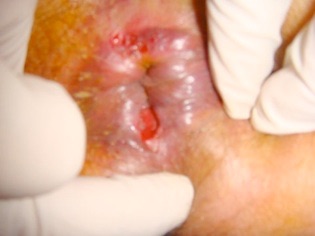Fissure Disease

What is Fissure Disease and How is it Treated?
Fissure disease, also known as anal fissures, is a painful condition that affects many people at some point in their lives. This condition involves small tears or cracks in the skin around the anal region, causing discomfort, pain, and sometimes bleeding. Understanding the causes, symptoms, and treatment options for fissure disease can help in managing the condition effectively and preventing complications.
What Causes Fissure Disease?
Fissure disease occurs when the skin around the anus becomes torn or stretched. Common causes include:
- Constipation: Straining during bowel movements can lead to the tearing of the skin in the anal area.
- Chronic Diarrhea: Frequent diarrhea can also irritate and tear the skin around the anus.
- Childbirth: Women may experience anal fissures due to the strain of childbirth.
- Anal Intercourse: This can sometimes cause tears in the anal skin.
- Low Fiber Diet: A diet lacking in fiber can contribute to constipation, increasing the risk of fissures.
Symptoms of Fissure Disease
The primary symptom of fissure disease is pain during or after bowel movements, which can be intense and sharp. Other symptoms include:
- Bleeding: You may notice bright red blood on toilet paper or in the toilet bowl.
- Itching: The area around the anus may feel itchy due to irritation.
- Swelling: Swelling in the anal area can occur, especially in severe cases.
- Visible Tear: You may be able to see a small tear or crack in the skin around the anus.
How is Fissure Disease Diagnosed?
A diagnosis is typically made through a physical examination, where your doctor will look at the anal area for visible tears or cracks. In some cases, further tests like an anal manometry or colonoscopy may be recommended to rule out other conditions and to examine the extent of the damage.
Treatment Options for Fissure Disease
1. Conservative Treatment:
For many people, conservative treatments can help heal anal fissures. These include:
- High-Fiber Diet: Eating fiber-rich foods can help soften stools and reduce straining.
- Sitz Baths: Sitting in warm water for 10-15 minutes can soothe the area and reduce pain.
- Topical Ointments: Prescription creams or ointments can help relax the anal sphincter and promote healing.
2. Medical Treatment:
If conservative methods fail, medical treatments may be required, including:
- Botox Injections: Botox can be injected into the anal sphincter to relax the muscles and improve blood flow to the area, which promotes healing.
- Nitroglycerin Ointment: This can also help relax the sphincter and improve blood flow.
3. Surgery:
For chronic or severe fissures that do not respond to other treatments, surgery may be required. Lateral Internal Sphincterotomy is a common procedure, which involves making a small incision to relax the sphincter muscle and relieve tension, allowing the fissure to heal.
Fissure Disease Treatment at Dr. Ankur Bhanushali’s Clinic
At Dr. Ankur Bhanushali’s Surgical Clinic, we specialize in the treatment of fissure disease using both non-surgical and surgical approaches. With the latest laser technology, we provide minimally invasive treatments for quick recovery and minimal discomfort.
Book Your Consultation Today:
📍 Dr. Ankur Bhanushali – Laser & Laparoscopic Surgeon
1st Floor, Aayush Multispecialty Hospital, Marigold Apartment, Almeda Road, Panch Pakhdi, Thane West – 400602
🌐 Website: https://www.drankurbhanushali.com
📍 GMB: https://maps.app.goo.gl/3Msc7YZqVkV9mQMQ7
📧 Email: dr.ankur.bhanushali@gmail.com
🔗 Facebook: https://www.facebook.com/profile.php?id=61573840205822
🔗 Instagram: https://www.instagram.com/surgeon_dr_ankur_bhanushali
🔗 LinkedIn: https://www.linkedin.com/in/dr-ankur-bhanushali-b85aab2a6/
If you’re suffering from fissure disease, consult Dr. Ankur Bhanushali for effective treatment options.
Laparoscopic Cholecystectomy Seamless Surgical Experience Surrounding Tissues Compared Monitor Ensuring Precision Latest Surgical Techniques Highly Effective Procedure Postsurgical Issues Making Patientcentered Approach Gallbladder Diseases Due Potential Complications Patient Wellbeing Make Diet Physical Activity Seasoned Professional Remarkable Reputation Follow Medical Advice Safety Effectiveness Extensive Experience Surgical Instruments Precision Expertise Treating Gallstones Quick Recovery Time Dr Ankur Bhanushali Postoperative Care Bleeding Infection Highest Standards Preferred Choice Preferred Method Expert Patients Leading Experts Smooth Recovery Opposite Nitin Surgeons Skill Minimal Trauma Minimal Risks Faster Return Surgeon Views 086910 33033 Bile Leakage Tiny Camera Wound Care
